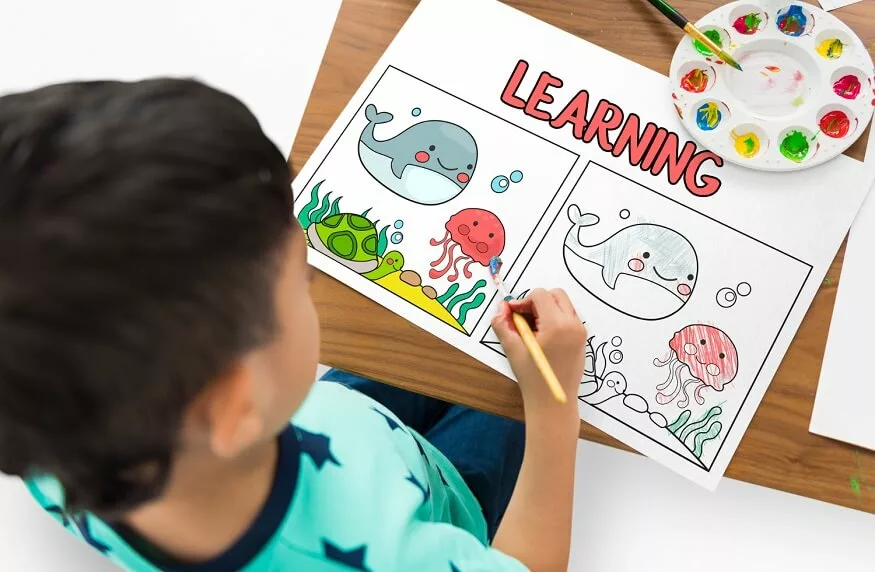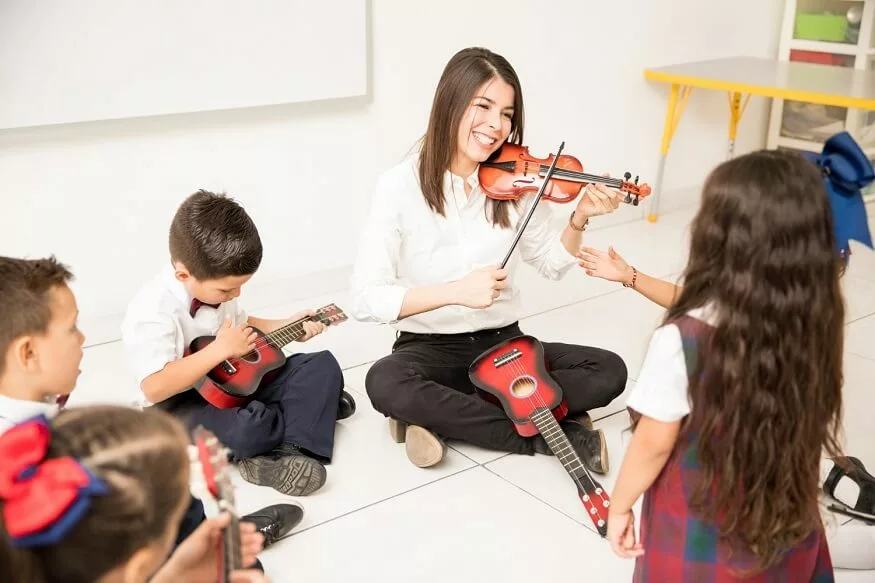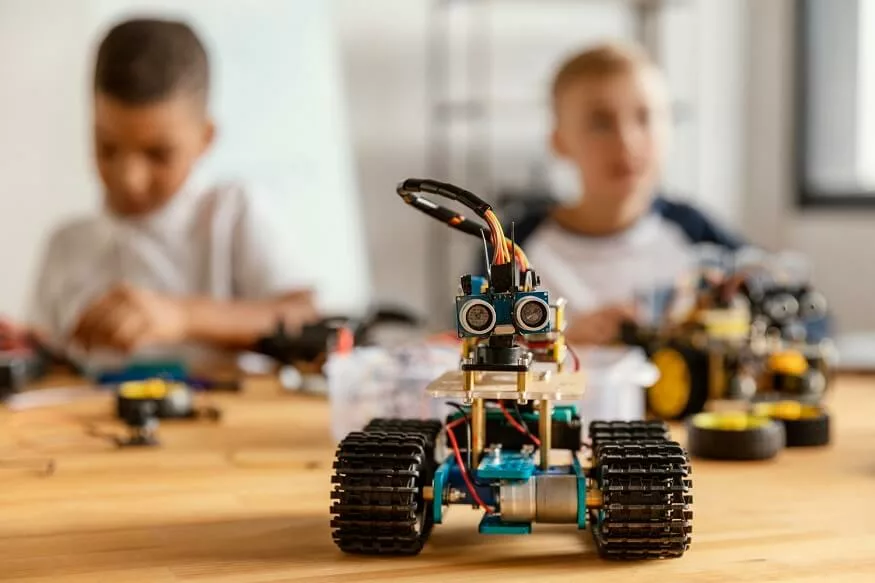Consider a classroom that is alive with activity, where learning is converted into an enjoyable experience. Experiential learning theory was developed by David Kolb, an American educational theorist and psychologist. Here Learning is a cyclical process that involves four stages: concrete experience, reflective observation, abstract conceptualization, and active experimentation.
Experiential Learning Theory proposes the best way to learn is to participate in activities directly, analyse what you have learned, and then apply that learned knowledge to real-world circumstances. It’s like starting on exciting trips where you may learn, experiment, and thoroughly enjoy the world around you.
In simple terms, experiential learning meaning is about learning by experiencing and thinking. Initially, you get to engage and feel it directly. After that, you have to analyse what you observed from that experience. They connect their experiences to existing knowledge or theories and seek patterns, relationships, or new insights.
Also Read: Digital Learning Initiatives in CBSE Curriculum
Benefits and Importance of experiential learning:
Communication Skills:
Through experiential learning activities, students engage in discussions, presentations, and collaborative projects. They learn to express their ideas, actively listen to others, and effectively communicate their thoughts, improving their verbal and written communication skills.
Critical Thinking and Problem-Solving Skills:
Experiential learning encourages students to analyse situations, critical thinking, and find creative solutions. Students gain the capacity to examine challenges from various viewpoints and make educated decisions by actively participating in problem-solving activities and real-life scenarios.
Collaboration and Teamwork:
Many experiential learning activities involve teamwork and collaboration. Students learn how to work effectively in groups, the value of cooperation, and how to build skills like leadership, discussions, solving problems, and compromise.
Adaptability and Resilience:
Experiential learning often presents students with challenges, uncertainties, and new environments. Students gain change, durability, and the capacity to overcome unexpected situations by breaking their comfort zones. They grow more adaptable and prepared to deal with changes in their academic and personal life.
Practical Skills:
Experiential learning provides students with practical skills that are applicable to real-world scenarios. For example, engaging in a simulated business project can teach students financial management, marketing strategies, and customer service. Such experiences bridge theoretical knowledge and practical application.
Also read : Back to school tips for Kids & Parents
Reflection and Awareness:
Experiential learning meaning is supporting students in the way to get a better grasp of their abilities, interests, and learning styles, this method encourages self-awareness and personal growth.
Experiential Learning Examples:
Let’s see some experiential learning examples,
- Imagine you’re learning about chemical reactions. Instead of just reading about them in a textbook, you conduct a hands-on experiment. By mixing different substances, observing the changes, and noting the results, you directly experience the reactions and gain a better understanding of how they work.
- Let’s say you’re studying history. Instead of solely reading about historical events, you go on a field trip to a museum or a historical site. Walking around the exhibitions, seeing objects of art, and hearing oral histories gives an actual and interactive experience that allows you to connect with the subject matter on a deeper level.
- Suppose you’re learning about conflict resolution and negotiation skills. Instead of just discussing theories and strategies, you engage in a role-playing activity. You take on different roles and simulate real-life scenarios where you have to negotiate and find solutions. By using this experience, you learn how to apply the concepts in a practical way.
- Let’s say you’re studying social issues and community engagement. Instead of only reading about them, you participate in a volunteer project. You might work at a local shelter, help clean up a park, or assist in organising a charity event. You get direct experiences and a greater awareness of social issues and the effects of your actions by actively participating in the community.
- Another bonus example of experiential learning, Imagine you’re learning about business and entrepreneurship. Instead of just memorising concepts, you start your own small business or create a mock business plan. By using this individual experience, you learn about marketing, sales, financial management, and problem-solving as you navigate the challenges and decisions faced by entrepreneurs.
Also read : Full Ride Scholarships: What They Are and How They Work
How does experiential learning work in India and Its challenges:
Project-Based Learning:
Students engage in hands-on projects to deepen their understanding of concepts.
Field Trips:
Visits to museums, historical sites, and nature reserves provide real-life experiences.
Practical Science Activities:
Hands-on experiments and STEM activities foster practical application of scientific concepts.
Social Service:
Community service projects promote social responsibility and empathy.
Entrepreneurship Programs:
Students develop business plans and participate in simulations to gain entrepreneurial skills.
Internships and Apprenticeships:
Real-world work experiences provide practical learning opportunities.
Experiential Learning Centres:
Dedicated centres offer immersive programs combining theory and practice.
Challenges:
Implementing experiential learning in India may face several challenges,
Infrastructure and Resources:
Limited infrastructure, inadequate equipment, and a lack of resources can pose challenges to providing hands-on experiences and practical learning opportunities. Schools and educational institutions may struggle to create well-equipped laboratories, outdoor learning spaces, or specialised facilities for certain subjects.
Traditional Pedagogical Approaches:
The traditional education system in India often emphasises rote learning and examination-oriented teaching methods. Shifting towards experiential learning may require a significant change in mindset and teaching practices among educators, as well as the support of educational policymakers.
Teacher Training and Professional Development:
Many teachers in India may not have received specific training in implementing experiential learning approaches. Providing comprehensive training and professional development opportunities to teachers to effectively incorporate experiential learning methods in the classroom can be a challenge.
Also read : How Do You Teach Kids the Importance of Life Skills
Assessment and Evaluation:
Assessing experiential learning outcomes can be challenging as it often goes beyond traditional examination formats. Developing appropriate assessment methods that align with the experiential learning approach and effectively measure students’ understanding, skills, and competencies may require innovation and careful consideration.
Cultural and Social Factors:
India is a massive country with various languages, cultures, and economical roots. It can be difficult to adapt experiential learning methodologies to respond to this variety and ensure inclusion in educational environments.
Policy Support and Integration:
Integrating experiential learning into the broader educational system requires supportive policies and guidelines from educational authorities. There may be a need for policy changes and reforms to encourage and enable schools and institutions to embrace experiential learning.
Also read : How to Study Smarter, not Harder
Conclusion:
At EuroSchool, we believe that the Experiential Learning Theory invites kids to experience the new learning technique, here learning is an exciting experience in which you learn by doing, reflecting, conceptualising, and experimenting. Open your mind, explore the unknown, and go on this vital getaway. Allow the power of experiential learning to spark your curiosity and lead you to a future filled with infinite opportunities.











